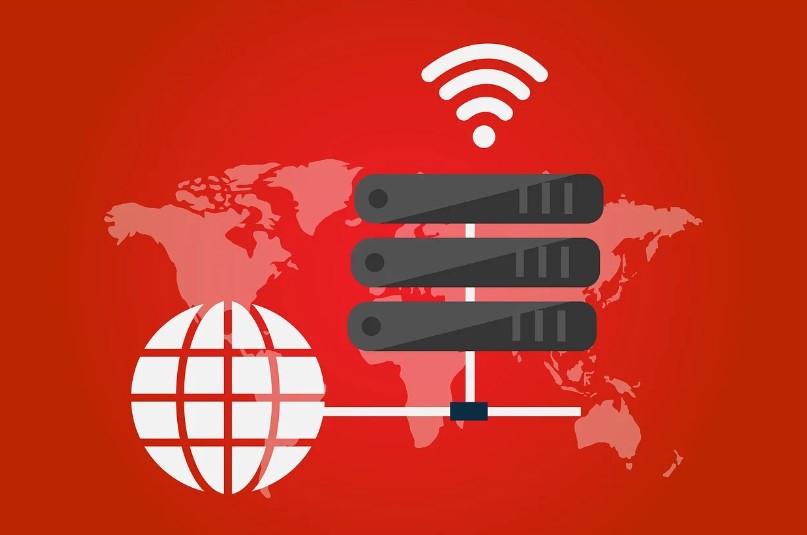In the realm of online anonymity and security, mobile proxies are emerging as a popular choice for users seeking enhanced privacy and access to geo-restricted content. This comprehensive guide explores mobile proxies in the UK, their functionality, why they are more expensive than regular proxies, how to create them, the differences between 3G, 4G, and 5G proxies, their pros and cons, setting them up for use in the UK, how to choose a provider, and concludes with frequently asked questions to provide a thorough understanding of this essential tool for online privacy and security.

Mobile Proxies – What Are They?
Mobile proxies, also known as 4G proxies, are proxies that route internet traffic through mobile devices’ cellular networks. Unlike traditional proxies that use fixed IP addresses, mobile proxies utilize dynamic IP addresses assigned by mobile network operators. This makes them ideal for users who require high levels of anonymity and access to geo-restricted content.
Why Are Mobile Proxies More Expensive Than Regular Proxies?
Mobile proxies are more expensive than regular proxies due to several factors. Firstly, mobile network operators charge higher fees for mobile data compared to traditional internet service providers. Additionally, setting up and maintaining a mobile proxy infrastructure requires specialized hardware and software, further adding to the cost. Moreover, the scarcity of mobile IP addresses and the demand for mobile proxies contribute to their higher price tag.
Creating Mobile Proxies
Creating mobile proxies involves obtaining SIM cards from mobile network operators and configuring them to route internet traffic through proxy servers. This process requires technical expertise and may involve purchasing or renting dedicated hardware and software solutions. Alternatively, users can opt to purchase mobile proxy services from providers that offer ready-to-use solutions.
3G, 4G, 5G – What’s the Difference Between Proxies?
| Aspect | 3G Proxies | 4G Proxies | 5G Proxies |
| Speed | Slower | Faster | Fastest |
| Latency | Higher | Lower | Lowest |
| Coverage | Limited | Wide | Widest |
| Technology | Older | Modern | Cutting-edge |
Pros and Cons of Mobile Proxies
Pros:
- Enhanced anonymity: Mobile proxies use dynamic IP addresses, making it difficult to trace users’ online activities.
- Access to geo-restricted content: Mobile proxies can bypass geographical restrictions and access content restricted to specific regions.
- High performance: 4G and 5G proxies offer faster speeds and lower latency compared to traditional proxies.
Cons:
- Cost: Mobile proxies are more expensive than regular proxies due to higher data charges and infrastructure costs.
- Reliability: Mobile proxies may experience connectivity issues in areas with poor mobile network coverage or during peak usage times.
Setting Up Mobile Proxies for the UK
Setting up mobile proxies for use in the UK involves selecting a reliable provider, obtaining SIM cards from mobile network operators, configuring proxy servers, and testing the proxies for performance and reliability. It’s essential to choose a provider that offers UK-specific mobile proxy solutions and provides comprehensive support throughout the setup process.
How to Choose a Provider for Mobile Proxies?
When choosing a provider for mobile proxies in the UK, consider factors such as reliability, performance, pricing, coverage, customer support, and compatibility with your specific use case. Look for providers with a proven track record, positive customer reviews, transparent pricing, and a wide range of proxy options to ensure you find the best solution for your needs.
Conclusion
Mobile proxies offer an effective solution for users seeking enhanced online privacy, security, and access to geo-restricted content in the UK. By understanding their functionality, differences, pros and cons, and how to set them up, users can make informed decisions and enjoy the benefits of mobile proxies for their online activities.
Frequently Asked Questions
1. Are mobile proxies legal to use in the UK?
Yes, mobile proxies are legal to use in the UK for legitimate purposes such as online privacy, security, and accessing region-restricted content. However, it’s essential to ensure that your activities comply with applicable laws and regulations.
2. Can mobile proxies be used for web scraping or data parsing?
Yes, mobile proxies are commonly used for web scraping and data parsing tasks due to their high level of anonymity and reliability. However, it’s essential to ensure that your activities comply with the website’s terms of service and applicable laws and regulations.
3. How can I ensure the security of my data when using mobile proxies?
To enhance the security of your data when using mobile proxies, ensure that you connect to reputable and trustworthy proxy servers. Additionally, consider using additional security measures such as encrypted communication protocols and VPNs for sensitive data transmission.


Leave a Reply